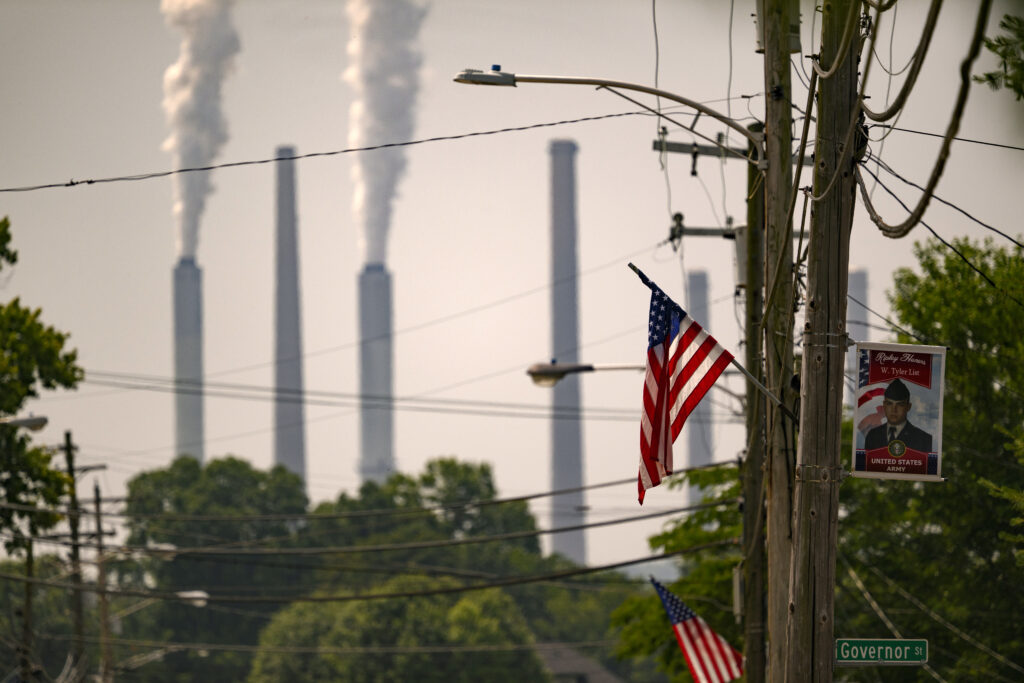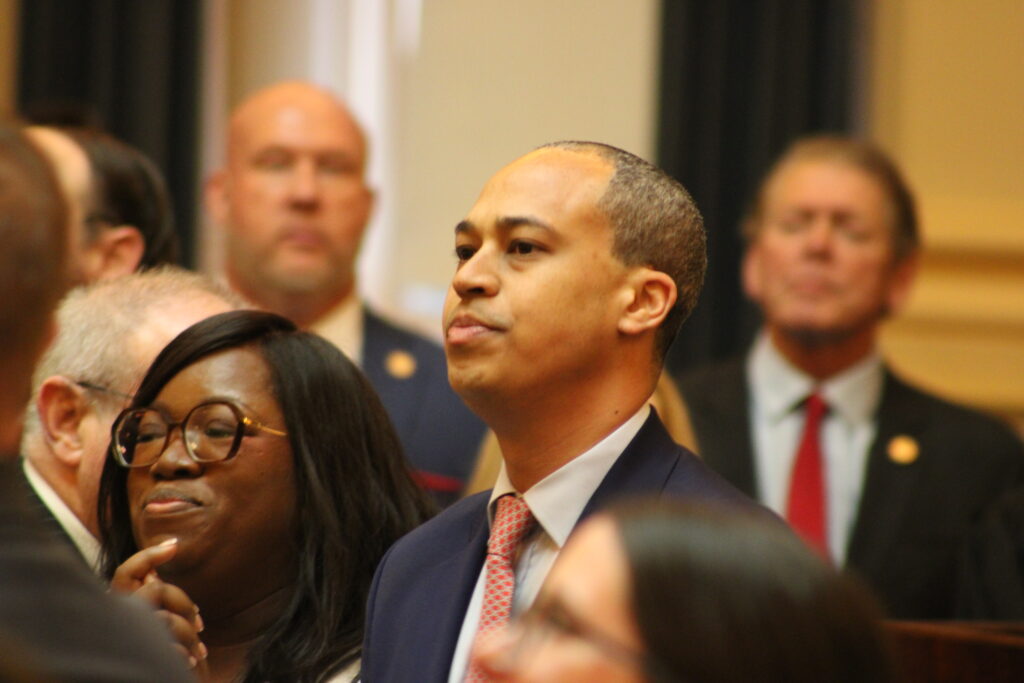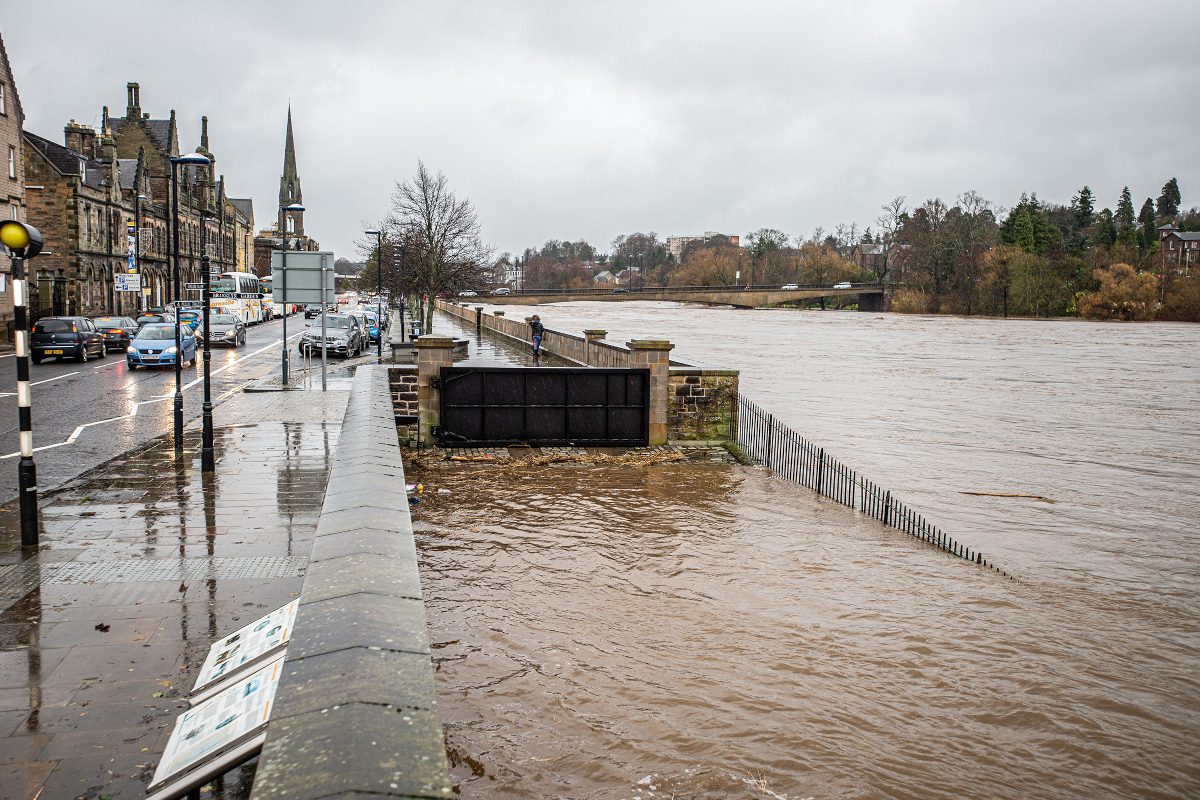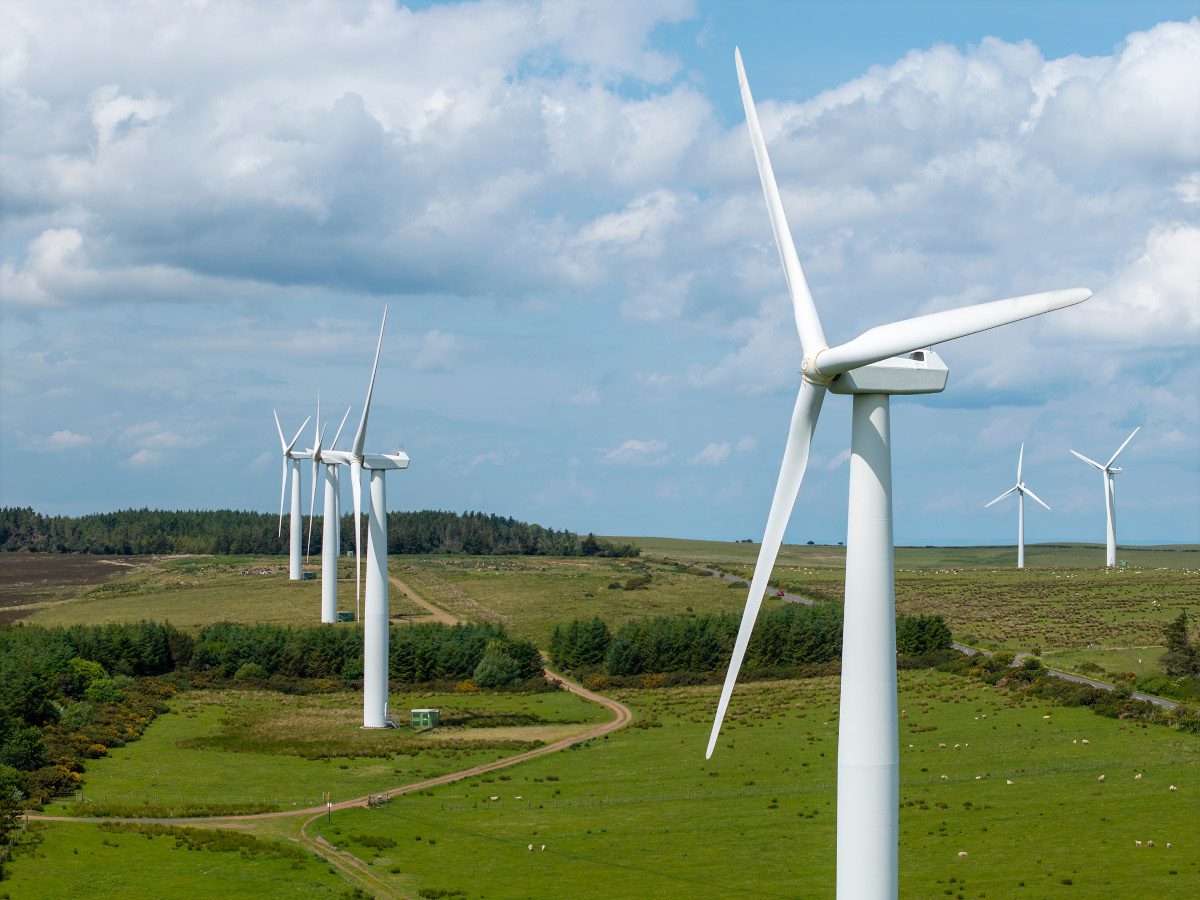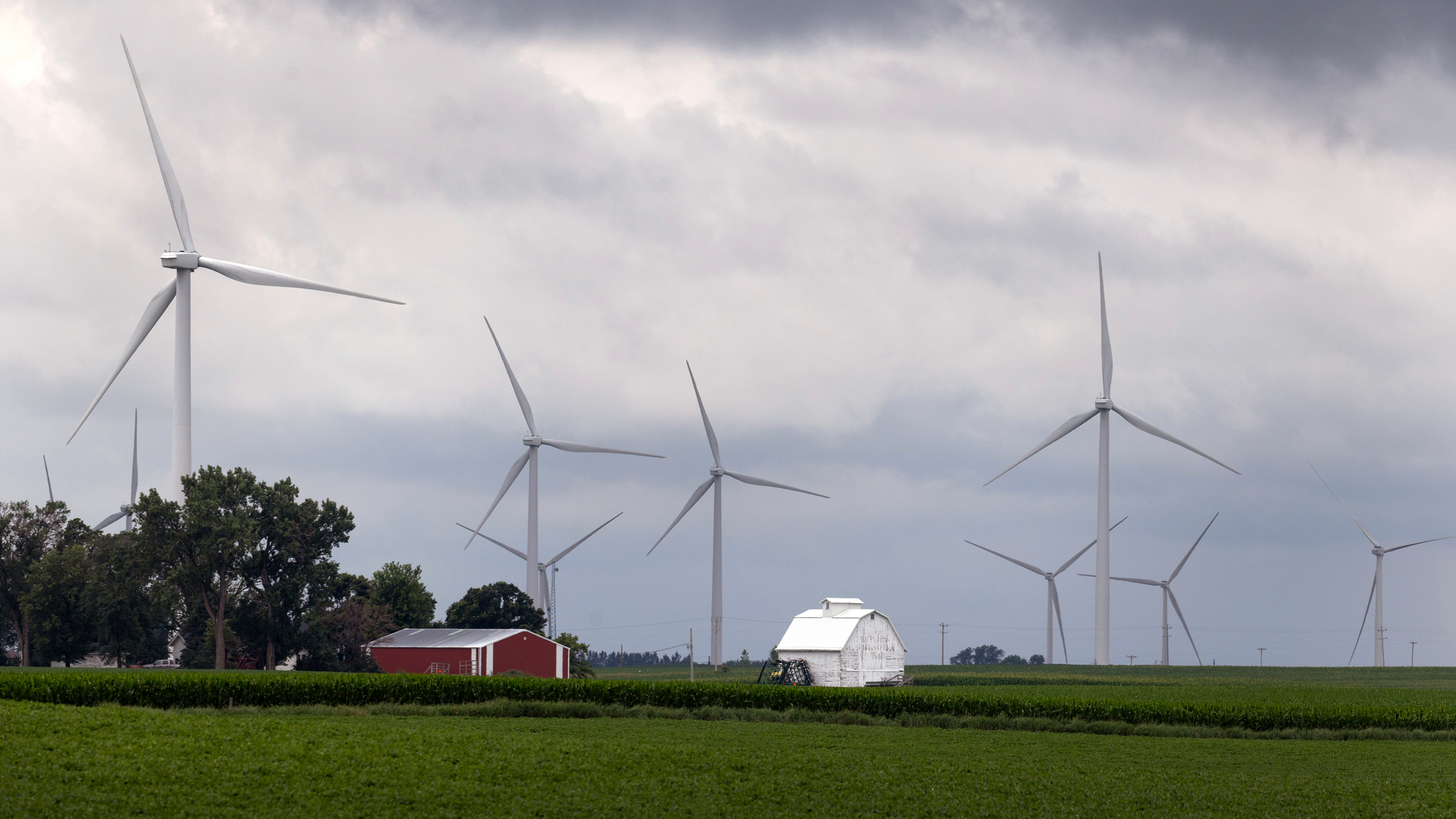Frustrated ratepayers and climate activists gathered in Freeport, Maine, last week to protest yet another rate hike proposal by Central Maine Power.
CMP’s proposal, submitted to the Maine Public Utilities Commission in September, would raise electricity rates over the next five years, generating roughly $1.4 billion in additional revenue to fund grid reliability and efficiency upgrades. For the average customer, that would mean about $35 more per month by the end of the period.
CMP, a subsidiary of Avangrid—a Connecticut-based energy company that operates eight regulated utilities across the Northeast—is the largest of Maine’s three major electric utilities, serving more than 646,000 customers across the state’s southern and central regions. While CMP delivers power, it doesn’t control generation as ISO New England manages the regional wholesale market that supplies Maine’s electricity. Approximately 67 percent of Maine’s power currently comes from renewables.
The utility says the increased revenue would go toward five key initiatives: installing stronger utility poles, running hundreds of miles of covered wire to reduce tree-related outages, adding smart technology to thousands of grid locations, constructing modern substations and expanding its “Danger Tree” removal program.
“Year-round, our electric grid is challenged by extreme heat in the summer and powerful storms in the winter,” Linda Ball, CMP’s president and CEO said in a statement. “That’s why we’re planning to invest in a stronger, more resilient grid.”
Storms in recent years have cost Maine millions, with those expenses increasingly passed on to ratepayers. In July, CMP customers saw a more than $4 monthly increase to cover storm damages from 2022 to 2024, which many hoped would be the last hike for some time.
Outages have also become more frequent, often caused by fallen trees that can cut power to thousands of homes at once. CMP says its proposal would fund the hiring of 400 new full-time workers to respond more quickly and harden vulnerable parts of the grid.
But CMP’s request for a 9.8 percent return on equity—the profit its shareholders would earn on their investment in the company—has drawn sharp criticism from consumer advocates and lawmakers who say it would unfairly burden CMP’s ratepayers.
“Even if CMP’s plan is perfectly suitable, residents can’t afford an almost 10 percent return that will go straight to shareholders,” said Seth Berry, a former state lawmaker and executive director of Our Power, a utility advocacy group and a leading force behind last week’s rally. Investor-owned utilities like CMP averaged a 9.6 percent return on equity in the first half of 2023 nationwide, costing consumers billions to supply what Berry sees as excess profits.
Gov. Janet Mills, a Democrat, has also criticized the proposal, noting that CMP has yet to submit a resilience and grid modernization plan required under LD 1959, a 2022 law mandating transparent, five-year upgrade proposals from utilities.
“It undermines legislation I signed to ensure planned electric utility investments are transparent and made with input from Maine people,” she said, calling on the Governor’s Energy Office to intervene, adding that the utility’s request “blatantly ignores the economic reality that Maine people face every day.”
CMP’s proposal comes amid a period of sharp energy price increases in Maine, where electricity rates have risen between 10 and 20 percent since 2024. The reasons behind those hikes are complex and hotly debated.
Critics of state renewable energy policies have pointed to Maine’s Net Energy Billing program, launched in 2019 to expand solar adoption by crediting customers for excess power they send to the grid. Utilities recover those costs from all ratepayers, which some argue shifts the financial burden to those without solar panels. A 2025 reform bill adjusting compensation rates to reduce that impact goes into effect in January.
Renewable energy advocates counter that fossil fuels—not solar—are the true culprit. About half of New England’s electricity still comes from imported natural gas, making the region vulnerable to price spikes during cold snaps or high demand. Since utilities pass those wholesale costs directly to consumers, fuel price volatility has caused household electricity bills to grow 55 percent since 2014 in Maine.
Growing demand from data centers and other large users across the regional grid has also begun to drive up wholesale prices, said Jonathan Rubin, professor of economics and energy policy at the University of Maine.
“Customers are understandably unhappy, but this may be just the beginning of cost increases as the nation needs to spend more money on our electrical transmission infrastructure,” Rubin said. “We also have to harden our infrastructure to make it more resilient to the increased frequency of extreme weather events.”
Advocates agree that grid upgrades are essential—but say they must be carried out transparently, in compliance with required planning, and without giving CMP shareholders near double-digit returns while Mainers already struggle with some of the highest energy burdens in the country.
A 2024 report found that low-income Mainers spend 14 percent of their gross income on home energy, over double what the U.S. Department of Energy deems a “high energy burden.”
“CMP’s corporate profits shouldn’t come at the expense of seniors, working families or our climate,” said Berry. He warns that high electricity prices could make it harder for Maine households, businesses and municipalities to invest in clean technologies such as heat pumps and electric vehicles—key steps toward the state’s climate goals.
Unless the Maine Public Utilities Commission quickly decides the rate request doesn’t comply with LD 1959, Our Power suspects it will be a long fight.
About This Story
Perhaps you noticed: This story, like all the news we publish, is free to read. That’s because Inside Climate News is a 501c3 nonprofit organization. We do not charge a subscription fee, lock our news behind a paywall, or clutter our website with ads. We make our news on climate and the environment freely available to you and anyone who wants it.
That’s not all. We also share our news for free with scores of other media organizations around the country. Many of them can’t afford to do environmental journalism of their own. We’ve built bureaus from coast to coast to report local stories, collaborate with local newsrooms and co-publish articles so that this vital work is shared as widely as possible.
Two of us launched ICN in 2007. Six years later we earned a Pulitzer Prize for National Reporting, and now we run the oldest and largest dedicated climate newsroom in the nation. We tell the story in all its complexity. We hold polluters accountable. We expose environmental injustice. We debunk misinformation. We scrutinize solutions and inspire action.
Donations from readers like you fund every aspect of what we do. If you don’t already, will you support our ongoing work, our reporting on the biggest crisis facing our planet, and help us reach even more readers in more places?
Please take a moment to make a tax-deductible donation. Every one of them makes a difference.
Thank you,







